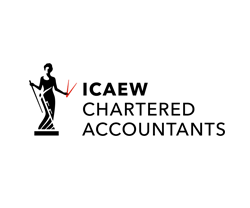March 6th, 2015
My friend says I can claim for all my clothes and make-up now I’m acting, is that true?
Clothes
Any clothes you buy just to use in your role as an actor for a film, stage or TV performance will be allowable against your income. Sometimes these items can also be used as part of your everyday wardrobe which would then mean you couldn’t claim for them.
Often it is quite clear that the purchase was purely for a business purpose. For example if you are a member of an Abba tribute group then all the 70s costumes, wigs, and shoes would be allowable. It’s clear that you are highly unlikely to wear these items as part of your everyday clothing. However, there are occasions which are less clear. You may need to buy an evening dress to wear as costume for a role you’re playing. You wear the dress for several weeks of performances and then never wear it again and claim for the cost against your income. That’s fine. In another scenario, you wear the dress for the part and then you go on to wear it for a number of parties. You’re not allowed to claim for this as the dress hasn’t been used solely for business purposes.
Recently, HMRC themselves made this area even more difficult for entertainers to understand and for their accountants to advise on.
Up until September 2012, their manuals quoted the example of a film actress buying a dress to attend the première performance of her latest film. They considered the cost of the gown to be allowable. They also said that if she wore the dress subsequently then this didn’t prevent the cost being allowable. However, if the original intention was to wear the gown for the première and for other private occasions then she should not claim.
They also quoted the example of a self-employed television interviewer being allowed to deduct the costs of a lounge suit acquired solely for use before the cameras as it is the interviewer’s ‘costume’. By contrast, a self- employed architect bought a suit in order to create a good impression while being interviewed on television but wasn’t allowed to claim for it because it is ‘everyday’ clothing worn in the course of his profession.
You can also claim the cost of costume and grooming (for example hairdressing and make up) when you make a ‘personal appearance’ to promote yourself. It’s always useful to keep a diary with photographs and descriptions of the events you attend. This can also be helpful to present as evidence if HMRC ever delve a bit deeper into the details of your expenditure.
Current practice in the industry is usually to claim for this type of expenditure on the same basis as pre September 2012 but we would always highlight to our clients that it is a risk area given the change in HMRC’s guidance – even though there’s been no change in the law.
Protective clothing is also an allowable expense, so if you find yourself buying lots of wet weather clothing to keep you dry on those long outdoor shoots, make sure you keep your receipts, note dates and description of why you need them and claim.
Hair and make-up
If you need to spend money at the hairdressers because of a role you’re playing then it’s likely to be allowable. If you are required to have your hair cut, styled, coloured in a certain way or just maintained for continuity purposes then keep your receipts, note the reason for the expense and claim. HMRC might query why the production company aren’t picking up the bill though if it really is an essential cost.
The same principle applies to make-up. If you are purchasing make-up and toiletries specifically to be used in your acting roles then keep your receipts, note the reason and claim that too.





